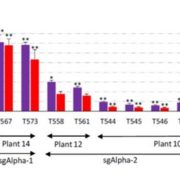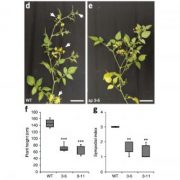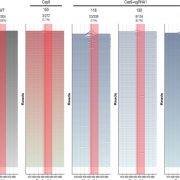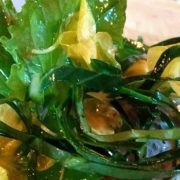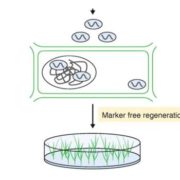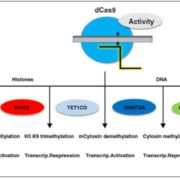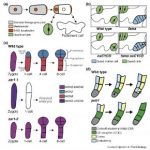Domestication of wild tomato is accelerated by genome editing (Nature Biotech. – $)
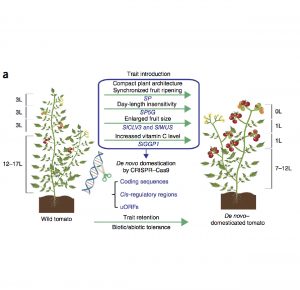 Wild tomato, Solanum pimpinellifolium, exhibits remarkable tolerance to salt stress and bacterial spot disease. Domestication of S.pimpinellifolium requires adjustment of day-length sensitivity, plant compactness, fruit size and the fruit could benefit from increased vitamin C content. Li et al. used multiplexed CRISPR-Cas9 strategy to edit genes previously described to affect desired phenotypes: SELF-PRUNING (SP), SP5G, CLEVATA3 (CLV3), WUSCHEL and SlGGP1. The transgenic plants exhibited compact plant architecture with intensive and synchronous fruit production and higher ascorbic acid content. The increase in fruit size was limited, possibly due to non-essential function of the targeted promoter region of CLV3. The transgenic plants retained their resistance to bacterial spot disease and performed better than the commercial lines under salt stress conditions. (Summary by Magdalena Julkowska) Nat. Biotech. 10.1038/nbt.4273
Wild tomato, Solanum pimpinellifolium, exhibits remarkable tolerance to salt stress and bacterial spot disease. Domestication of S.pimpinellifolium requires adjustment of day-length sensitivity, plant compactness, fruit size and the fruit could benefit from increased vitamin C content. Li et al. used multiplexed CRISPR-Cas9 strategy to edit genes previously described to affect desired phenotypes: SELF-PRUNING (SP), SP5G, CLEVATA3 (CLV3), WUSCHEL and SlGGP1. The transgenic plants exhibited compact plant architecture with intensive and synchronous fruit production and higher ascorbic acid content. The increase in fruit size was limited, possibly due to non-essential function of the targeted promoter region of CLV3. The transgenic plants retained their resistance to bacterial spot disease and performed better than the commercial lines under salt stress conditions. (Summary by Magdalena Julkowska) Nat. Biotech. 10.1038/nbt.4273


